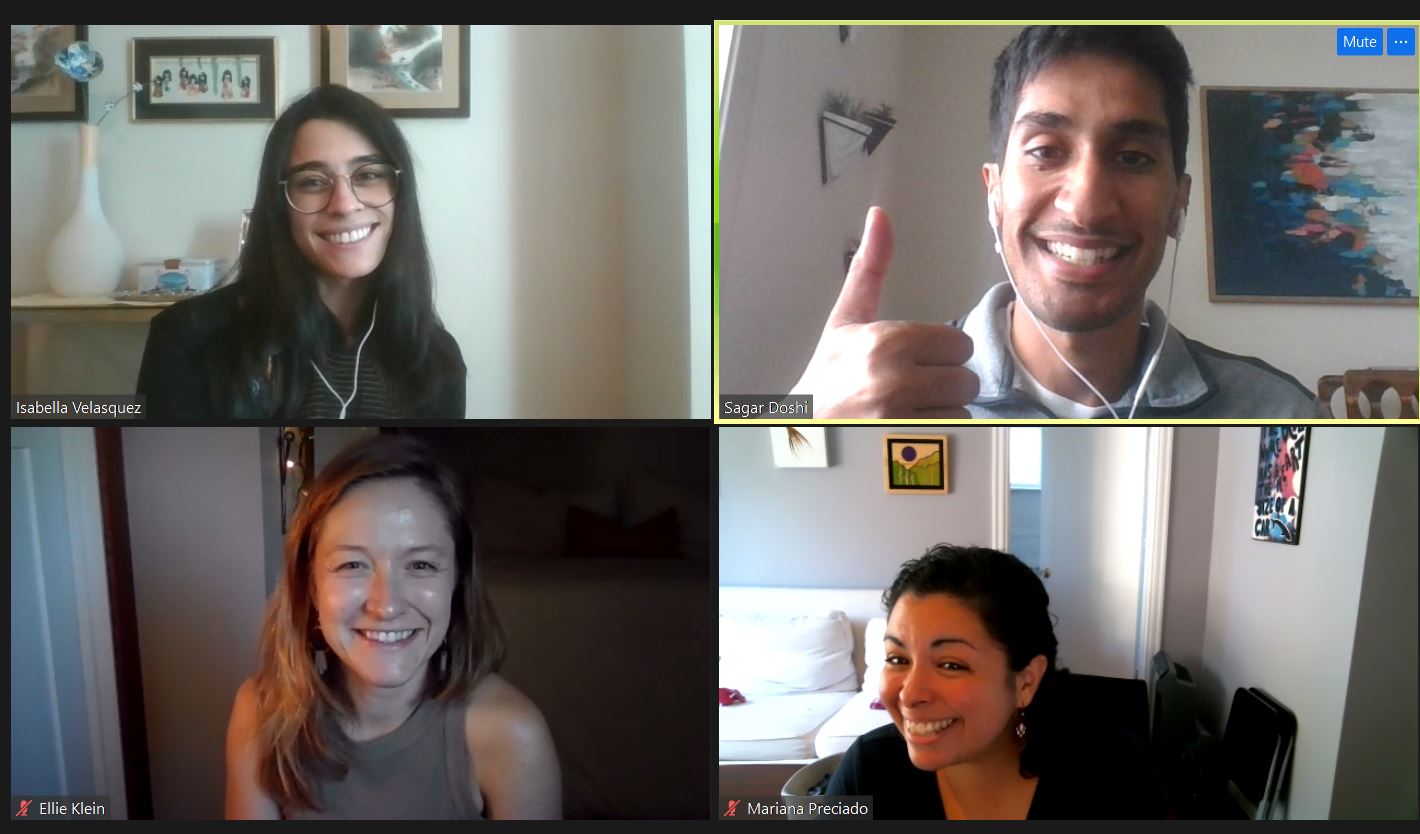Berkeley-Haas Partners with Farmigo to Provide Fresh, Sustainable Food to Students, Faculty and Staff

By Deborah Fleischer, CRB Communications Consultant, and Amy Dinh, CRB Program Manager
Julia Silbergeld (MBA ’15) and member of CRB’s new Student Advisory Board left her position as HR Director at Greenpeace to pursue her MBA at Berkeley-Haas. She is passionate about increasing access to healthy, local food. She initiated the Farm-to-Haas online farmers’ market delivery program through Farmigo; it allows Haas community members to order food from local sustainable farms for delivery on campus. We had the opportunity to speak with Julia about her passion for sustainable food and the story behind the Farm-to-Haas program.
What inspired your interest in sustainability?
I have been very passionate about justice issues for most of my life. To me, sustainability is really about fairness and justice at a core level. Some large corporations are acting irresponsibly and are going to have, especially through climate change, a major impact on people’s lives all over the world. I find this very disconcerting and upsetting. Right after I got out of college, Hurricane Katrina happened, and I really got that this is what is going to happen increasingly to people if we don’t do something. I was really inspired to do environmental work after that and to work towards a more sustainable future.
I came to Haas to look at market-based solutions. I think there is a role for the advocacy and non-profits to be pushing the corporate sector, but I also think there’s really a need for disruptive and innovative companies to create solutions.
What sparked your interest in sustainable food?
A lot of my interest in food is that it is an access point for people on environmental and health issues. In a way that is really fun and enjoyable. Everyone has a connection to food in some way. There’s a lot of cultural connection to food, and it’s something that is not necessarily scary in the way that talking about climate change can be really scary or inaccessible to people.
What led you to bring sustainable food to Haas?
I’m really passionate about food. I think it’s a great way on a personal level to make good decisions as a consumer, but then I also think system-wide there’s a lot of opportunity to make changes, to improve both people’s access to food and to improve the way that we’re growing our food.
Before I came to Haas, I had been living in Washington, D.C., where I was involved in the local food movement. I was really excited to come to California because we have access to amazing produce and food here since we are in the salad bowl of the country. But on campus I found there wasn’t a lot of access to fresh produce. The Berkeley downtown Farmers’ Market is not very accessible to where a lot of Haas students live.
Personally, I was not going to the farmers market very often. And I was really thinking, why isn’t there a farmers’ market on campus? Why can’t we bring local, sustainable food closer to people and make it more accessible?
How did you select Farmigo?
I started looking around at different options and came across Farmigo, which works with many schools and other delivery sites. I then reached out to the Haas administration and was prepared for some pushback. Instead, they were really supportive.
Farmigo is unique because it’s a just-in-time process. You put in your order on Sunday and the sustainable farms pick it for the delivery on Wednesday. So it’s really fresh. It’s always been harvested within 48 hours; when you go to a grocery store, you’re not buying something that fresh. And a Farmigo delivery doesn’t travel very far. It’s from a small, local farm that’s putting a lot of care into how they grow their food. It’s basically an online program that brings the variety and quality of a farmers’ market to you via convenient, weekly deliveries. Unlike many similar delivery programs, you have the freedom to customize your order each week to ensure you only get the food you want.
Farmigo partners with a number of local farmers and producers, so there are fruits, vegetables, meat, bread, eggs, and dairy. There’s an option to get a farmers’ choice box, which is sort of like getting a CSA box, where you get a random mix of ten to twelve different fruits and vegetables. Or you can just pick a la carte specifically what you want. And most people are picking what they want, using it more like an online farmer’s market.
What has been the reaction from students?
We did a pilot program in the fall, testing it with a small number of students, and now we have expanded it to include faculty, administrators, and students from other programs. There are almost 200 people participating now. The reaction has been really positive. Overall, everyone is impressed with the quality. We have a strong core of people who are buying most of their groceries through the program each week.
What has been your personal experience with the program?
If I buy my groceries through Farmigo, I actually spend a lot less, because I’m not buying random processed foods, like crackers or cookies, which I might do if I go to the supermarket. By making it really easy to get access to fruits and vegetables, I eat more fruits and vegetables. It’s much healthier and much more aligned with the type of food and agriculture that I want to be supporting. The most sustainable thing would be for me to grow all of my fruits and vegetables in my backyard. But as a graduate student realistically I’m not going to have the time to feed myself that way.
How do students, faculty, and staff learn more and sign up?
To sign-up now and check out what you can order, go to this link and click on “Sign Up” in the upper right corner. There is a coupon that you can use to get $10 off your first order if it is over $20—type in 10OFF20.
We expect the program will go on hiatus over the summer, but we’ll launch it again in the fall. If you sign up now and don’t put in an order, you’ll still get a reminder when the program starts back up in the fall.
Feel free to email [email protected] with any questions.


